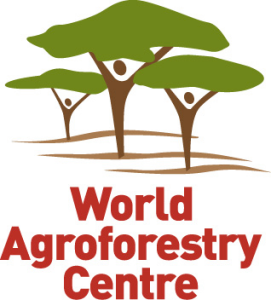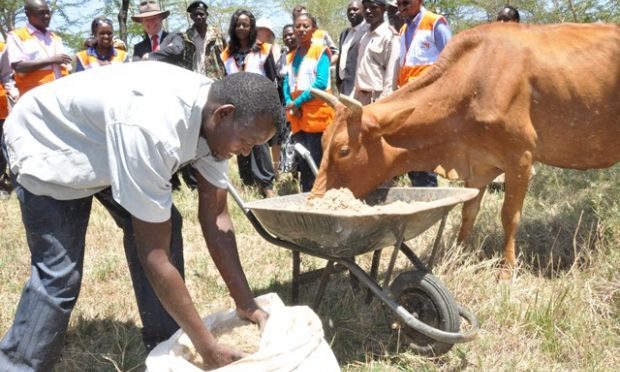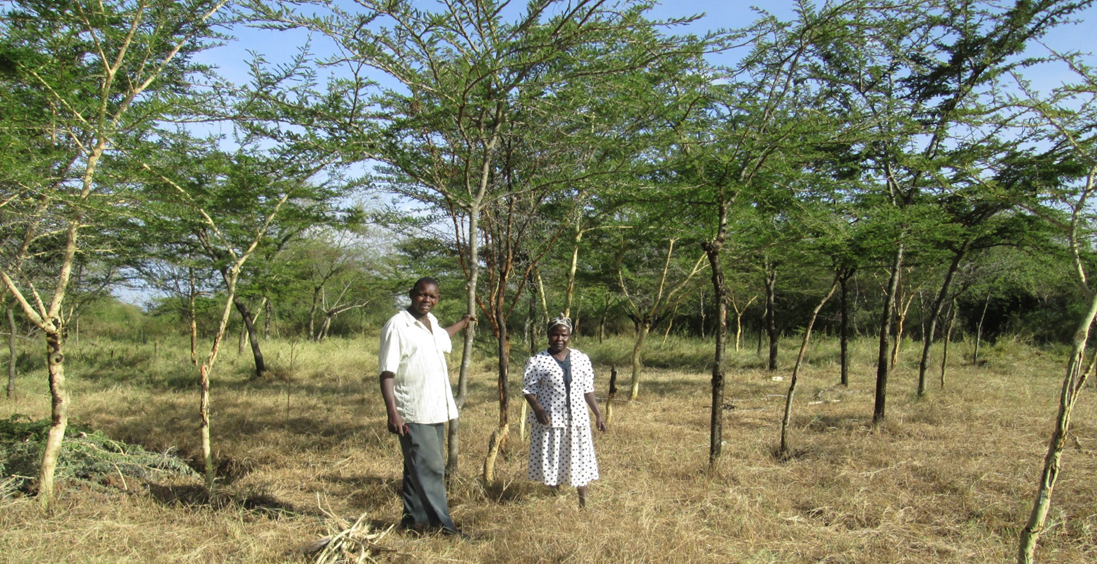
FMNR for East Africa: Kenya
Tens of thousands of hectares of farmlands in Kenya have been so degraded that they no longer produce adequate or regular crops or pasture for livestock. They have lost virtually all of their natural vegetation, yet 70% or more of Kenya’s population are subsistence farmers relying on this degraded resource base for their food and livelihoods. This is coupled by poverty and perennial land fragmentation where land areas have been subdivided into unviable, uneconomic units that cannot support meaningful agriculture and natural resource management.
This notwithstanding, climate change has exacerbated the problem as communities at the grassroots level depend and usually revert to environmental services to meet their basic needs and especially during lean times such as floods and droughts. This scenario greatly exacerbates poverty and creates a vicious cycle of poverty and environmental degradation
The situation is aggravating but certainly not hopeless! Farmer Managed Natural Regeneration (FMNR) has provided hope to communities in restoring the vegetation cover at low cost and reaping immeasurable benefits from adopting it. FMNR is based on systematic re-growth of existing trees or self-sown seeds, and is possible wherever there are living tree stumps with the ability to re-sprout or seeds in the soil that can germinate. FMNR is cheap, rapid; farmer led and implemented, and uses local skills and resources.
FMNR encourages natural tree re-growth by selecting, pruning and protecting naturally regenerating trees, and uses living rootstock making sprouting of tree stumps easier, making it cheaper than tree planting. The approach has proved to have a great potential in restoring tree cover. The fact that the method is flexible and adapting to farmers’ situations and needs, this has made the community pick it up very fast.
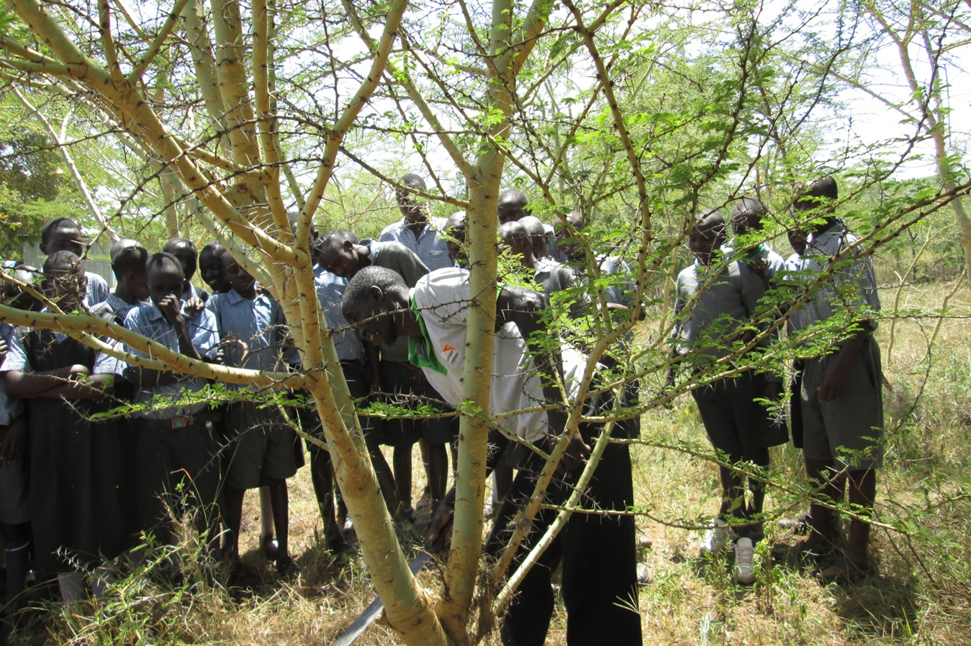
FMNR has increased the farmers’ supply of a range of products that farming households can either consume or sell, such as firewood, food, medicine and fodder. The project also promotes use of improved cookstoves and other alternative household livelihoods. The project has benefited the entire household including men, women and children and specifically women, who in many homes are tasked with carrying out household chores which include collecting firewood and cooking.
Using farmers as extension agents has been instrumental in spreading FMNR. Voices of change are now being heard from the community…
Simple technique, great benefits
“I did not know that this was really easy. After being taught by Peninah (FMNR farmer-to-farmer extension agent), I pruned the tress and cleared shrubs on my land and the grass has really grown. Now I have a lot of grass for my animals. Pasture is usually a problem during dry seasons but through FMNR, my cows have enough grass and I have managed to sell a surplus of 50 bags of grass worth Kshs.12,500 (USD 145). Milk production from my cows increased gradually from 3 litres to 13 litres per day, which I sell 5 litres per day (at Ksh.34/litre) while the rest is consumed by my children. I have used the proceeds from FMNR to buy books, uniform, and paid school fees for my children. My wife has enough time for other economic activities such as working at the vegetable garden and attending women savings groups since she doesn’t have to walk long distances in search of firewood or graze livestock since grass and firewood are available within the homestead. My children can now concentrate on doing their homework since they don’t have to look for firewood anymore!’’
Mr. Jonathan Lagat – FMNR farmer
‘‘This is what we used to teach our children before they got married… and the trees were not destroyed, you have just given it the name FMNR’’
Bundotich
“Trees that used to give us medicine have disappeared, the trees will now start coming back through FMNR’’
Mr. Bowen
Children and youth’s participation in FMNR through schools and other organized events is becoming more instrumental in promoting FMNR, and a culture of environmental stewardship is already being inculcated amongst them.
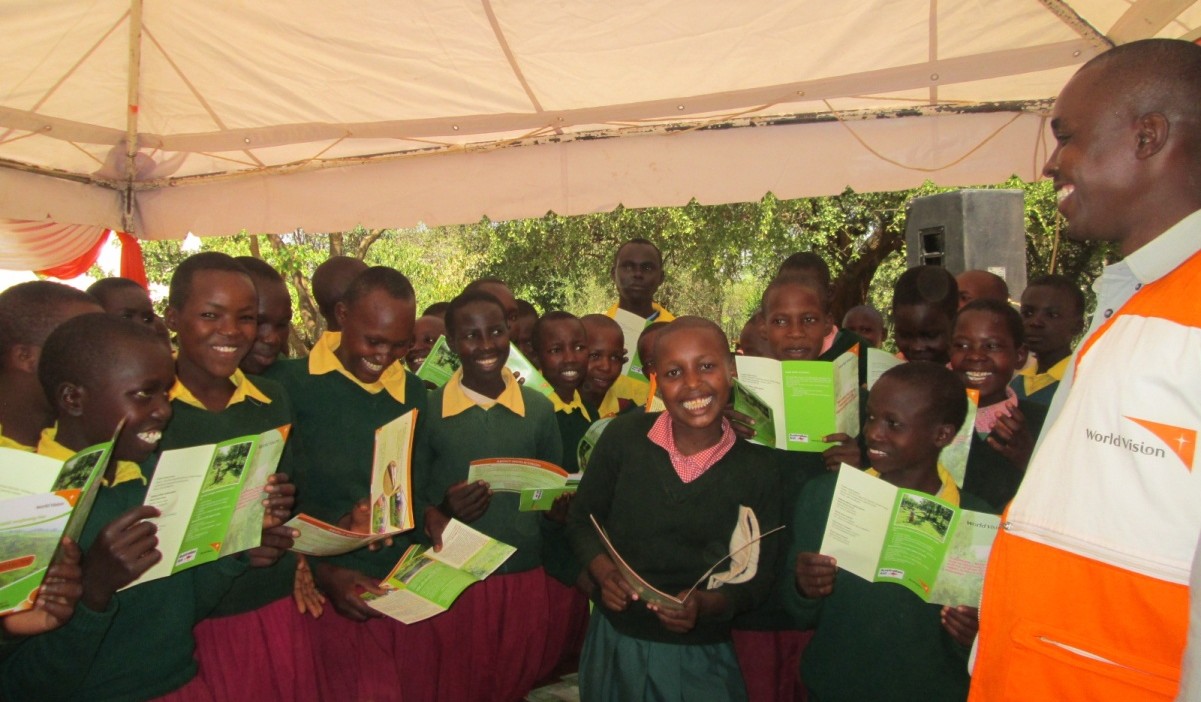
It is quite evident that this project is on course to achieving its goal of improving food security and climate resilience at household level, as quite a number of households are presently enjoying improved wellbeing through FMNR.


